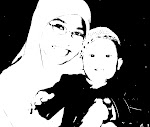
Allah taala berfirman yang bermaksud
"Maka berjalanlah keduanya hingga tatkala keduanya menaiki perahu lalu dia (Khidr) melubanginya. Musa berkata 'Mengapa kamu melubangi perahu itu yang akibatnya kamu menenggelamkan penumpangnya'. Sesungguhnya kamu telah buat sesuatu kesalahan yang besar'." (Al-Kahfi : 71)
"Adapun kapal itu adalah kepunyaan orang-orang miskin yang bekerja di laut dan aku bertujuan merusakkan bahtera itu kerana di hadapan mereka ada seorang raja yang merampas tiap-tiap kapal." (Al-Kahfi : 79)
Petunjuk-petunjuk
1. Ayat ini menerangkan satu kejadian yang dialami oleh nabi Musa a.s dan Khidr. Khidr telah membocorkan kapal tanpa menjelaskan sebabnya sehingga ditegur oleh nabi Musa a.s. Di akhir pertemuan mereka berdua, Khidr menerangkan bahawa dia memecahkan kapal berkenaan agar ia tidak dirampas oleh raja yang zalim. Walau pun perbuatan memecahkan kapal itu telah merosakkan kapal milik orang miskin tetapi ia telah menyelamatkan kapal itu dari terus hilang dari pemiliknya yang miskin. Walau pun kapal itu rosak, tetapi si miskin masih tetap memilikinya. Kerosakan itu boleh dibaiki atau kayu-kayu kapal itu masih boleh bermanfaat bagi si miskin dan ini lebih baik dari kalau kapal itu dirampas oleh raja.
2. Ayat ini menjadi dasar kepada kaedah 'Jika bertemu dua kemudaratan, maka diharuskan untuk menanggung kemudaratan yang lebih ringan'.
3. Mengapakah Khidr tidak memilih untuk menghalang raja dari merampas kapal itu? Tidakkah dengan buat sedemikian ia tidak perlu merosakkan kapal itu? Hanya Allah taala sahaja yang tahu jawaban sebenarnya. Namun ia memberi pengajaran kepada kita bahawa kadangkala dalam usaha dakwah, pilihan yang terbaik yang ada bagi kita ialah bukan dengan berkonfrontasi langsung dengan punca masalah tetapi melakukan sesuatu yang lain atau menanggung salah satu dari mudarat yang lebih ringan.
4. Apabila seseorang itu memilih jalan untuk menanggung salah satu dari dua mudarat yang lebih ringan, itu tidak bermakna dia itu lemah, kurang wara', takut dan sebagainya. Ini adalah satu pilihan yang pastinya sukar tetapi aktivis dakwah yang objektif harus berani membuat pilihan sedemikian.
5. Kadangkala kita perlu buat tindakan yang tidak popular demi maslahat dakwah dan orang ramai, sebagaimana yang dilakukan oleh Khidr, kerana amal dakwah berdasarkan maslahat syariat bukan populariti semata-mata.
6. Hatta nabi Musa a.s tidak tahu semua benda dan boleh tersilap dalam menanggapi sesuatu perkara. Oleh itu, setinggi mana sekali pun taraf seseorang, hendaklah dia mengakui bahawa dia mungkin tersalah seperti nabi Musa dan orang lain itu betul seperti Khidr. Sikap sedemikian juga mestilah dibina oleh seorang pendidik terhadap anak buahnya. Dengan itu si anak didik, tidak merasa bahawa pendidiknya itu sentiasa betul dan berani untuk berbeza pandangan dengan pendidiknya.
7. Tanggapan seseorang dan tindakannya bergantung dengan apa yang dia tahu. Nabi Musa a.s mengkritik Khidr kerana dia tidak tahu apa yang diketahui oleh Khidr. Maka perlulah kita memahami bahawa apa jua tanggapan kita terhadap sesuatu perkara, ia mungkin betul berdasarkan apa yang kita tahu tetapi tidak betul berdasarkan apa yang kita tidak tahu. Oleh sebab itu, perlulah berusaha untuk memperolehi sebanyak maklumat sebelum menanggapi sesuatu perkara.
8. Kita mesti terbuka untuk menerima kritikan. Apabila dikritik, tidak boleh cepat melenting kerana tidak semua orang tahu apa yang dia tahu atau faham apa yang dia lakukan. Apabila dikritik, berikanlah penjelasan dengan baik.
9. Boleh bagi kita untuk tidak memberi penjelasan dahulu terhadap apa yang kita lakukan, jika kita mempunyai sebab yang wajar e.g mentarbiyah anak buah, strategi dll.
wallahu a'lam
dipetik daripada laman ustaz




No comments:
Post a Comment